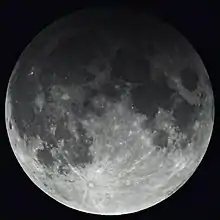
A total lunar eclipse will take place on January 22, 2084.
Visibility
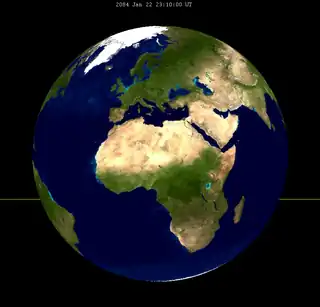
Related lunar eclipses
Inex series
The inex series repeats eclipses 20 days short of 29 years, repeating on average every 10571.95 days. This period is equal to 358 lunations (synodic months) and 388.5 draconic months. Saros series increment by one on successive Inex events and repeat at alternate ascending and descending lunar nodes.
This period is 383.6734 anomalistic months (the period of the Moon's elliptical orbital precession). Despite the average 0.05 time-of-day shift between subsequent events, the variation of the Moon in its elliptical orbit at each event causes the actual eclipse time to vary significantly. It is a part of Lunar Inex series 35.
| Descending node | Ascending node | Descending node | Ascending node | ||||
|---|---|---|---|---|---|---|---|
| Saros | Date Chart |
Saros | Date Chart |
Saros | Date Chart |
Saros | Date Chart |
| 115 | 1505 Feb 18 |
116 | 1534 Jan 30 |
117 | 1563 Jan 9 | 118 | 1591 Dec 30 |
| 119 | 1620 Dec 9 | 120 | 1649 Nov 19 | 121 | 1678 Oct 29 | 122 | 1707 Oct 11 |
| 123 | 1736 Sep 20 | 124 | 1765 Aug 30 | 125 | 1794 Aug 11 | 126 | 1823 Jul 23 |
| 127 | 1852 Jul 1 | 128 | 1881 Jun 12 | 129 | 1910 May 24 |
130 | 1939 May 3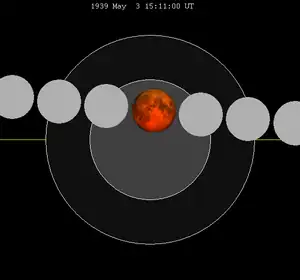 |
| 131 | 1968 Apr 13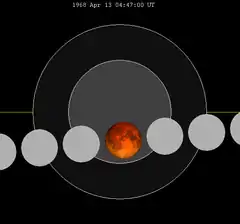 |
132 | 1997 Mar 24 |
133 | 2026 Mar 3 |
134 | 2055 Feb 11 |
| 135 | 2084 Jan 22 |
136 | 2113 Jan 2 | 137 | 2141 Dec 13 | 138 | 2170 Nov 23 |
| 139 | 2199 Nov 2 | 140 | 2228 Oct 14 | 141 | 2257 Sep 24 | 142 | 2286 Sep 3 |
| 143 | 2315 Aug 16 | 144 | 2344 Jul 26 | 145 | 2373 Jul 5 | 146 | 2402 Jun 16 |
| 147 | 2431 May 27 | 148 | 2460 May 5 |
149 | 2489 Apr 16 | ||
Half-Saros cycle
A lunar eclipse will be preceded and followed by solar eclipses by 9 years and 5.5 days (a half saros).[1] This lunar eclipse is related to two total solar eclipses of Solar Saros 142.
| January 16, 2075 | January 27, 2093 |
|---|---|
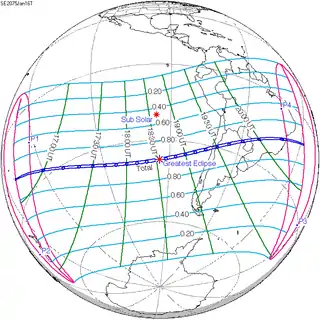 |
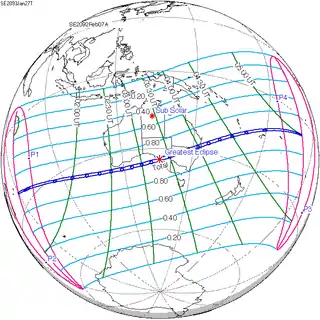 |
See also
Notes
- ↑ Mathematical Astronomy Morsels, Jean Meeus, p.110, Chapter 18, The half-saros
External links
- 2084 Jan 22 chart Eclipse Predictions by Fred Espenak, NASA/GSFC
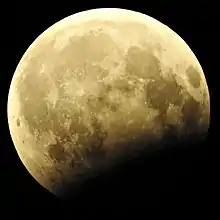
_(cropped).jpg.webp)
